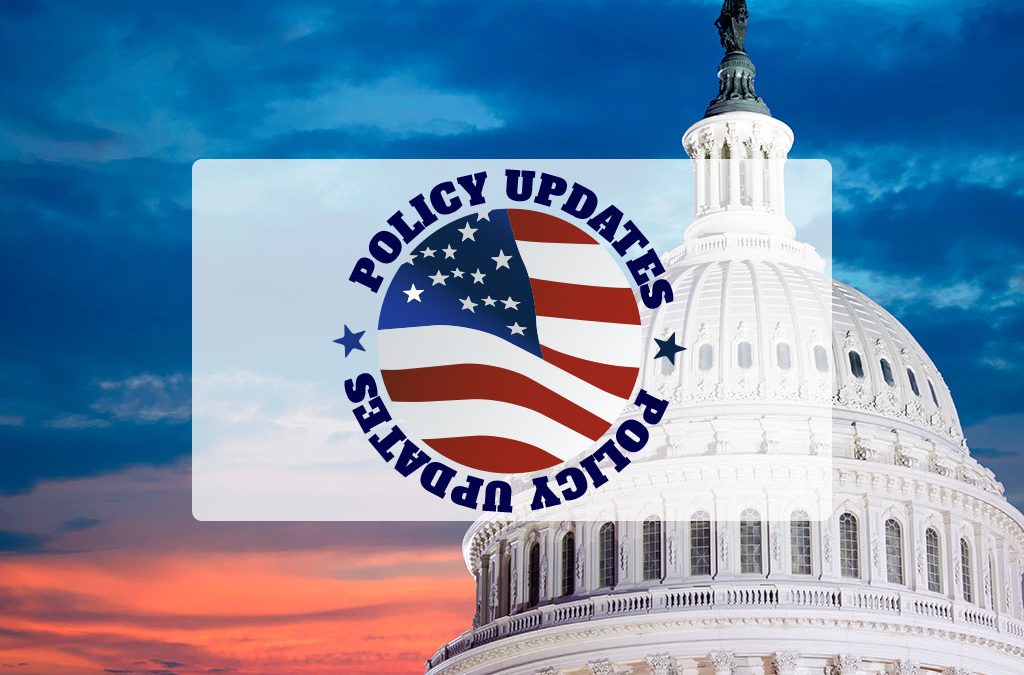The data is in! See what family owned businesses are saying about today’s challenges and opportunities.
Tax Package Update—Senate Likely to Punt Consideration to Following Week: The Senate returned to Capitol Hill on Monday, and while consideration of the Tax Relief for American Families and Workers Act (H.R. 7024) was included on Senate Majority Leader Chuck Schumer’s (D-NY) April 5 Dear Colleague letter, the Senate’s agenda this week is already at capacity. Priorities for Senate consideration include the impeachment trial of Homeland Security Secretary Alejandro Mayorkas, which the Senate majority will likely table after House managers deliver the articles of impeachment, as well as the reauthorization of the Foreign Intelligence Surveillance Act. Senate Republicans are seeking modifications to the tax bill, with industry and family groups continuing outreach campaigns over the recess urging action on the package. Schumer will likely move to proceed to the tax package during this work period, although the timing is uncertain, which will add further pressure for Senate Republicans to make a decision on the bill.
House-Passed FSGG Appropriations Bill Houses IRS Rescission: On March 22, the House passed a “minibus” spending bill containing the last six remaining fiscal year 2024 appropriations bills: State-Foreign Operations, Defense, Homeland Security, Labor-HHS, Legislative Branch and Financial Services-General Government (FSGG). The FSGG bill would provide $12.3 billion for the Internal Revenue Service (IRS) for its annual operations, maintaining the FY23 funding level for the agency, but $1.8 billion less than what the president requested in in his annual budget proposal. The amounts allocated for Taxpayer Services ($2.8 billion), Enforcement ($5.4 billion) and Operations Support ($4.1 billion) remain unchanged from FY23 levels. Notably, the bill does not include any funds for IRS Business Systems Modernization and contains language designed to protect small businesses and households with incomes below $400,000 from increased audits. The FSGG bill also includes the previously agreed-to $20.2 billion rescission from IRS funds allocated in the Inflation Reduction Act (Pub. L. 117-169).
OECD Misses Deadline for Amount A Convention Text: The Organisation for Economic Co-Operation and Development (OECD) missed its March 31 deadline to reach an agreement on the final convention text for Amount A, a critical facet of the Pillar One global tax agreement. Amount A would affect companies with revenues above 20 billion euros (approximately $21 billion) and profit margins in excess of 10%, with some exceptions.
IRS Closes ERTC Voluntary Disclosure Program, Leaves Open the Possibility of Resumption: March 22 marked the deadline for entities to submit applications for the Internal Revenue Service’s (IRS) program to voluntarily disclose erroneous disbursements of the Employee Retention Tax Credit (ERTC). The program yielded promising results—with a March 15 announcement noting that the agency had collected $225 million from over 500 taxpayers, and projections that the agency still had several hundred more applications left to process. As a result, an IRS official noted during a reporter call on March 22, the IRS could potentially reopen the program.

About Brownstein Hyatt Farber Schreck
Brownstein Hyatt Farber Schreck is a unique law firm. Walk into any of our offices and you’ll immediately recognize a different type of energy. Complacency doesn’t have a place here. Flexibility and inspiration do. Our culture and enthusiasm allow our attorneys, policy consultants and legal staff to stay ahead of our clients’ needs and provide them with the resources they require to meet their business objectives.
We hope you've enjoyed this article. While you're here, we have a small favor to ask...
As we prepare for what promises to be a pivotal year for America, we're asking you to consider becoming a member.
The need for fact-based reporting of issues important to family owned businesses and protecting a lifetime of savings has never been greater. Now more than ever, successful families and family owned businesses are under fire. That's why Family Enterprise USA is passionately working to increase the awareness of issues important to family owned businesses built on hard work, while continuing to strengthen our presence on Capitol Hill. The issues we fight for or against with Congress in Washington DC include high income tax rates, possible elimination of valuation discounts, increase in capital gains tax, enactment of a wealth tax, and the continued burden of the gift tax, estate tax and generation skipping tax.
Family Enterprise USA promotes generationally owned family business creation, growth, viability, and sustainability by advocating for family businesses and their lifetime of savings with Congress in Washington DC. Since 2007, Family Enterprise USA has represented and celebrated all sizes, professions and industries of family-owned enterprises and multi-generational employers. It is a bi-partisan 501.c3 organization. Family foundations can donate.
#incometax #CapitalGainsTax #R&DExpensing #DontPunishSuccess #GrantorTrusts #StepUpinBasis #likeKindExchanges #AcceleratedDepreciation #EstateTax #Deathtax #wealthtax #taxLegislation #CongressionalCaucus #incometaxrates #repealestatetax #AdvocatingForFamilyBusinesses #FamilyOwnedBusiness #WomenOwnedBusiness @FamilyEnterpriseUSA #FamilyEnterpriseUSA

